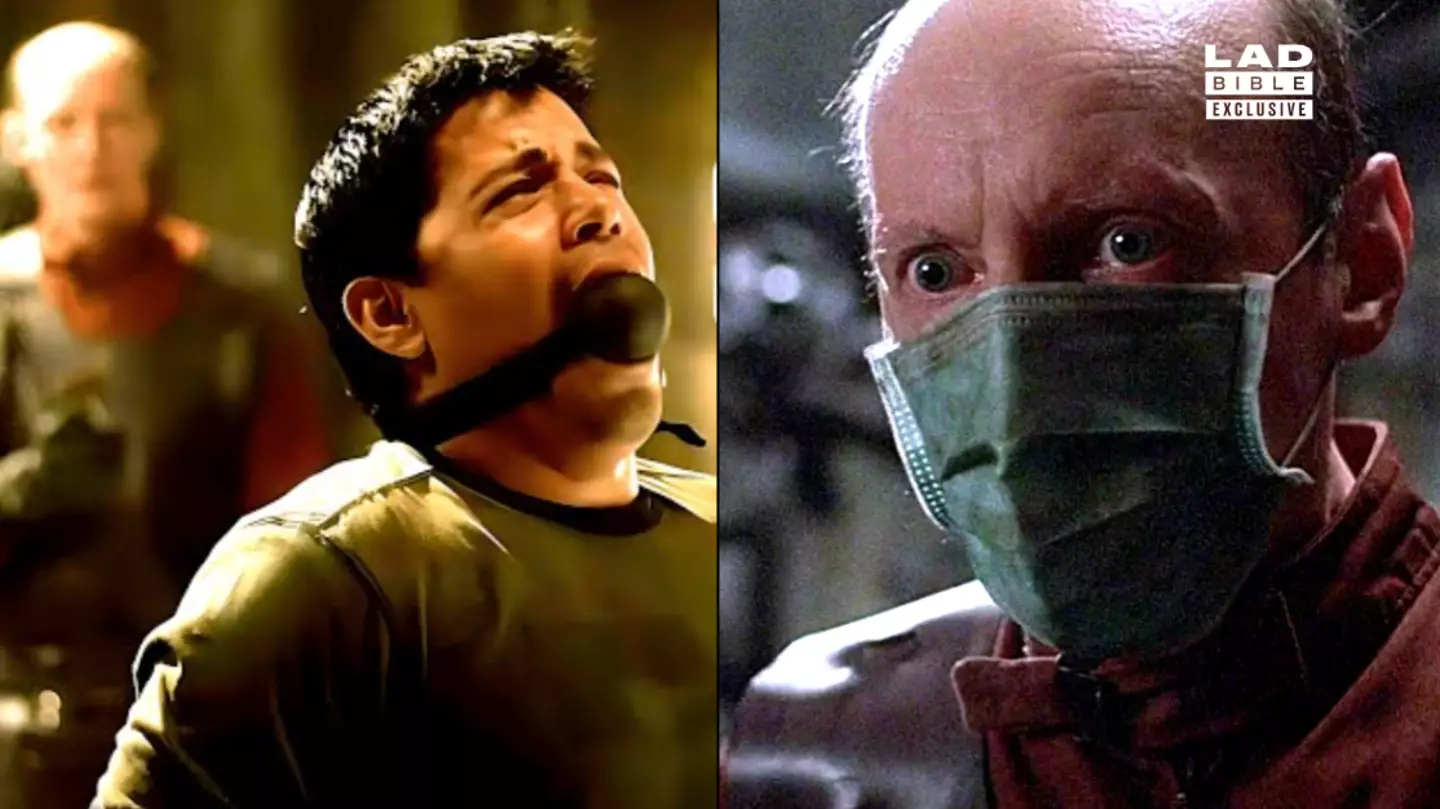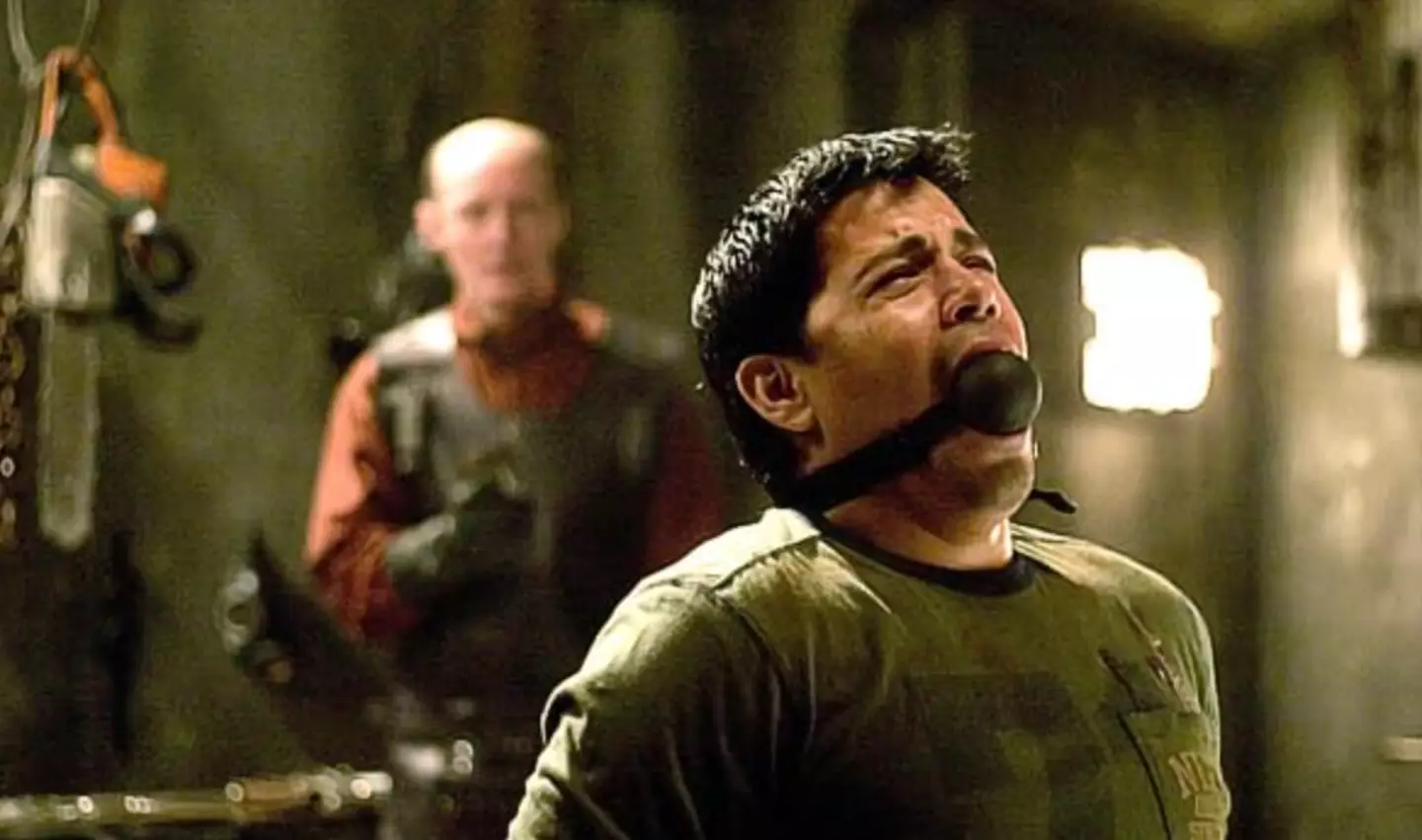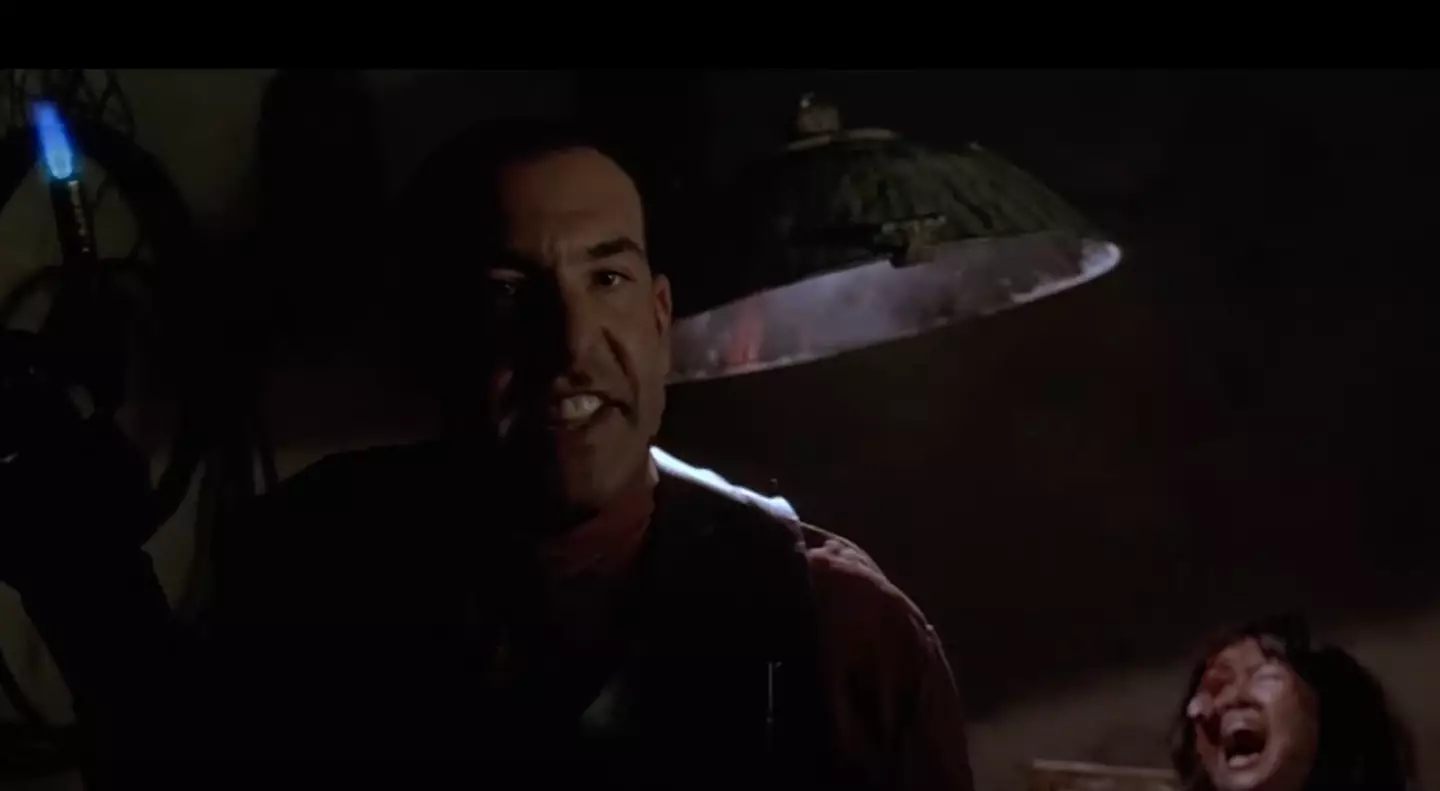
When it landed in cinemas back in 2006, Hostel quickly became one of the most talked about movies on the planet.
The film follows two young backpackers, Paxton and Josh, who head out on the trip of a lifetime across Europe only to be kidnapped and brutally tortured by wealthy sadists looking for a kick.
Disgusted, many critics at the time branded it nothing more than crass 'torture porn', but despite the controversy surrounding it, almost 20 years on from the movie's release, Eli Roth's creation remains a cult classic.
Speaking exclusively to LADbible about the film, the Borderlands director revealed that what makes the movie so scary is not so much its Achilles tendon slicing and eyeball boiling barbarity but the fact it could actually happen.
Advert
Yep, despite its extreme depiction of rich elites deriving an almost sexual pleasure from dismembering dum, horny US tourists, a lot of the inspiration behind Hostel came from chilling real-world events - and one incredibly disturbing website.
"What people do when no one's looking"
Roth began working on the film around the time that images of American soldiers abusing Iraqi prisoners in Abu Ghraib prison started to circulate in the US media.
One of the photographs showed a naked prisoner held on a leash by their US captor, another a pyramid of naked prisoners with grinning American soldiers looking on. There were allegations of violence and sexual assault, with a Red Cross report detailing abuse that was ‘tantamount to torture’.

Advert
“We were seeing images coming out of Abu Ghraib, going, ‘God, is this what the Americans are doing?’" Roth recalls. "With these soldiers and bodies piled up, all those photographs that came out. Just the thought of what people do when no one's looking."
Around the same time, the young director stumbled on ‘a deep web thread where you could pay money to know what it felt like to kill someone’.
For a fee of $10,000, the website claimed you could go to Thailand, walk into a room, and shoot someone in the head. The victim had apparently volunteered for this, with part of the fee going to their desperate families.
“The idea was so chilling,” Roth says. “I thought, ‘Can you make a documentary about this?’”
"Does this really happen?"
Speaking back in 2006 to Dread Central, Roth said he reached a dead-end with his research when he was asked to enter his credit card information to access the murder-for-hire site.
Advert
He told the outlet: "To get any further I would have had to give personal information and I figure these people kill people for a living."
Instead he settled for a narrative feature film - casting Jay Hernandez and Derek Richardson as the unlucky uni friends - inspired by his terrifying brush with the darkest corners of the internet.
He tells us: “We're talking about the sick things that people with money do in secret. At the time, it seemed like, ‘God, does this really happen?’"
Adding, ironically: "Now, Hostel kind of seems like a documentary.”

"All Slovaks should be offended"
Not everyone appreciated Roth's creative efforts.
Advert
BBC film critic Nev Pierce said: “Beyond its ‘how far can I go?’ attitude to violence, Hostel has no reason to exist.”
The New York Times’ Nathan Lee called it ‘one of the most misogynistic films ever made’.
While its harshest critic was probably the Slovakian government, who didn’t take kindly to their country being portrayed as having a thriving black market for torture. One MP said ‘all Slovaks should feel offended’ by the film.
Defending the movie, Jennifer Lim - who plays Kana, one of the torture victims in the film - says: “It’s done through an American gaze.
“I can understand where they're coming from. But at the end of the day, there is some artistic license involved.”
"It was terrifying doing a scene like that"
Lim had the pleasure of starring in arguably the film’s most brutal scene, in which her character’s eyeball is melted off by a chilling American torturer (Rick Hoffman).
Advert

“It was terrifying doing a scene like that but you also have to trust the people that you were working with," the British actor recalls. "Because of my trust in them, that enabled me to go deep into the scene and, as the character, be really frightened by it.
“He took great care not to hurt me. I mean, he had a blow torch.”
Lim's makeup - which shows her left eyeball dangling from her face by its optic nerve - took four hours to apply, and shocked her colleagues.
“Leaving the trailer, there were lots of people looking at me," she says. "I suppose it's not every day you see someone with an eyeball hanging out of their socket.”
"You want the audience to feel they had their a** kicked"
Roth himself was careful not to take the gore too far. Many of the torture scenes use snappy editing to give glimpses of toe-curling body horror, but the camera doesn't linger on the violence.
“You want the audience to feel like they had their a** kicked, but not get kicked in the balls," he jokes.
“It’s easy to put a shocking, violent image [on screen]. It's about finding that line of having people uncomfortable and going, ‘I don't know if I'm allowed to watch this. Is this OK?’ I want to push the boundaries as far as I can, but still have people going, ‘What happens next?’”
Well, what’s happening next for Hostel is a reimagining of the franchise - which went on to have two sequels - as an ‘elevated thriller’ in a new TV series starring Paul Giamatti, who had been lined up for Rick Hoffman’s role in the original Hostel film.
The new series will be ‘like The White Lotus, where each season you're exploring a different story and then change the location, season to season’.
The way the world has changed over the past 20 years is a challenge Roth is tackling too: “Now we live in this world of the internet and TikTok, where everyone's looking all the time, how do they do that stuff?”
But no matter how hard people look, the despicable things people do when they don’t think they’re being watched will always be a resonant topic - and that, more than any of the stomach-turning gore of the Hostel franchise, is what makes it a classic.
Topics: Film